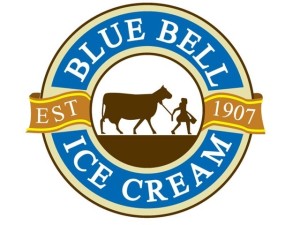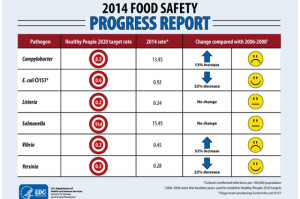Some good investigative work by CBS News figuring out how a beloved Texas icon could be crass when it came to public health.
 There’s the usual stuff about how workers said the places were dumps, after the outbreak became public, but didn’t say much when they were working there.
There’s the usual stuff about how workers said the places were dumps, after the outbreak became public, but didn’t say much when they were working there.
Guess everyone needs a paycheck.
In April, Blue Bell Creameries recalled all of its products in 23 states. The ice cream was contaminated with listeria which can be fatal to people who are ill or have compromised immune systems.
In part two of the investigation, investigators show CBS News how the case of the mystery deaths was solved.
When Megan Davis and her team from the South Carolina Department of Health randomly sampled ten products from a local Blue Bell distribution center in January — the last thing they expected to find was listeria.
“It was unbelievable actually,” said Davis. “We never in a million years thought we’d find a positive sample.”
Two of the ten samples tested positive, but just to be sure, they went back and collected 30 more.
“All 30 of the samples that we tested, tested positive for listeria,” said Davis. “Yes, stunning. A little scary that those products were going to consumers.”
Davis uploaded their findings into Pulsenet, a database of DNA fingerprints the Center for Disease Control monitors to identity outbreaks nationwide.
“The listeria germs found in South Carolina in the ice cream matched illnesses in a hospital in Kansas,” said Dr. Robert Tauxe, deputy director of CDC’s Foodborne Disease Division.
That hospital was Via Christi St. Francis in Wichita. Listeria had sickened five of their patients over the past year, but the hospital couldn’t figure out where it was coming from. The listeria patterns found in South Carolina solved the mystery in Kansas.
Turns out, all five of the patients had been served milkshakes made with Blue Bell ice cream.
In mid-February, Blue Bell quietly pulled all the ice cream made on the machine that had produced the ice cream testing positive in South Carolina, citing a quality issue. But Via Christi still had plenty of other Blue Bell products in its freezers. The Kansas Department of Health tested 45 of them, and found another hit.











